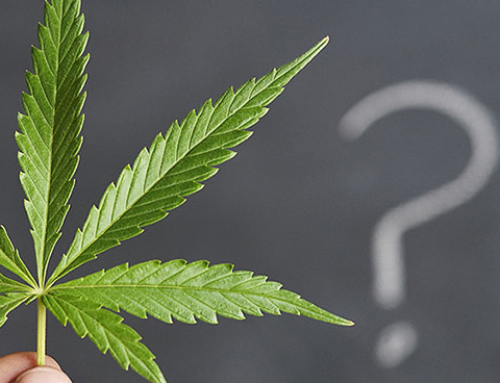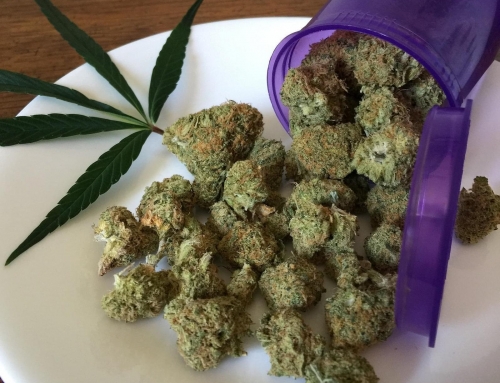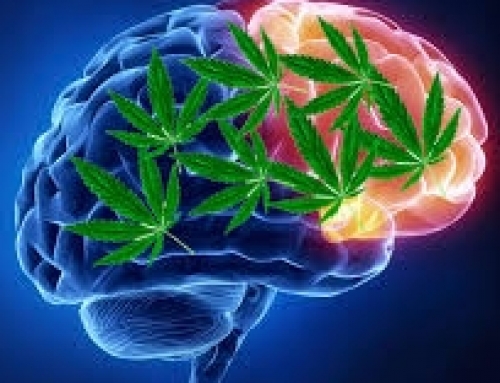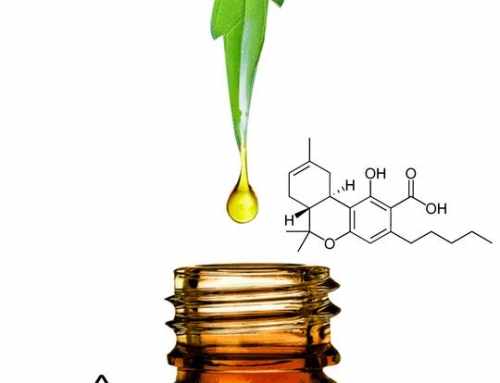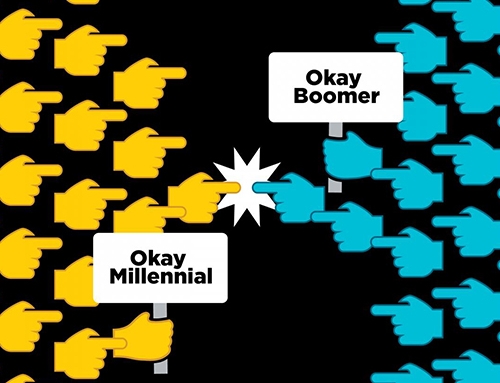Autism Spectrum Disorder (ASD) refers to an array of neuro-developmental conditions with conspicuous symptoms that include obvious communication impairment, evident deficits in social interaction skills, visibly restricted patterns of attention or interest, abnormal repetitive motor movements and prominent cognitive deficits. The shocking rise of ASD diagnosis’s presents not only challenges for an individual’s quality of life but also has a large impact on our entire society. In the United States nearly 50% of students with an autism diagnoses do not graduate high school on time, or at all. Additionally, 70% of autistic adults are unemployed or underemployed forcing most to live below poverty. There is an urgent need to increase government funded resources to support individuals and with ASD and fund research to understand the causes of autism and develop treatment options as they have a direct impact on individuals and our society.
The chain of links between the endocannabinoid system’s (ECS) strengths and ASD’s symptom expression is intriguing. The ECS is key in the regulation of neural communication as well as the regulation of emotional responses. It plays an important role in interpreting, understanding and reacting to context and in the management of social interactions. The ECS is also involved in returning to balance many of the other symptom’s characteristic of ASD such as heightened anxiety, intellectual deficits, sleep disturbances, and even seizures. The interlacing of ASD’s constellation of probable symptoms and the ECS’s management and influence over those same systems is unmistakable and encourages study.
Along with experiential evidence suggesting a positive involvement of the ECS in ASD, there have been a few studies that have specifically examined the role of the ECS in ASD. Completed studies have suggested that cannabinoid compounds found naturally in many varieties of cannabis can help some autistic children to experience dramatic behavioral improvement and even full freedom from ASD’s disruptive symptoms.
A new study published in the journal Nature Communications lends support to a growing body of evidence showing that medicinal cannabinoids hold a welcomed potential for both treating and possibly curing this chronic illness. Daniele Piomelli from the University of California, Irvine (UCI) and her colleague Olivier Manzoni from Inserm, a French research agency, discovered that with a lack of receptor activity of the endocannabinoid analogue for CBD, 2-AG, there was a breakdown of the transport of electrical signals between neurons. Children with ASD, including those with Fragile X syndrome origins, often have inferior or non-functioning receptor activity for 2-AG, and that creates chronic synaptic failure in the brain. Fragile X Syndrome is a genetic abnormality that is one of the leading causes of ASD. Many children with Fragile X-induced autism have become mentally disabled as a result of this synaptic failure and have had difficulty developing basic skills like walking or talking, or more complex skills like behaving appropriately in social settings. But supplementing with cannabinoids like CBD has helped effectively block those enzymes that inhibit the proper function of 2-AG at the receptor sites.

There are also symptom-based areas of promising research to understand the connections between the ECS and characteristic autistic abnormalities. For example, autism robs empathy and social motivation. People with autism lack attention to and interest in social interaction, social stimuli or social rewards. Studies have shown that a deficit in social play behavior may be due to reduced anandamide levels in critical brain areas. Other studies have shown a “down-regulation of GPR55 and PPAR gene expression, supporting a possible corrective role for these receptors on the cognitive mechanisms involved in autism.” Because there is evidence that atypical neural development is causal in autism, the proven link between a functioning ECS and reliable neural communication may provide a solution to upgraded neural performance and a lessening of autistic symptoms. Autism can bring chronic sleep disorders and atypical sleep patterns. The ECS controls and manages circadian rhythms that direct wake/sleep cycles. Anxiety is another element of the autistic spectrum and endocannabinoids can relieve anxiety.
Understanding of the endocannabinoid signaling in autism is in its early stages put a particularly promising line of research into the role that the ECS may play in autism is looking at target metabolic enzymes and key elements of their oxidative pathways like cyclooxygenases that hold therapeutic promise against inflammatory flare ups.
Due to the connection between autism and epilepsy, a further important line of research focuses on therapeutic drug development focused on the ECS to fight epilepsy and seizure disorders. These new drugs could potentially ameliorate the epilepsy-related symptoms that commonly co-occur with ASD, thereby shedding more light on the interaction between the ECS and seizures in ASD diagnosed children.
Overall, there is great hope for future research demonstrating specific cannabinoid and terpene combinations that hold promise for the treatment of autism and its many varied symptoms.



